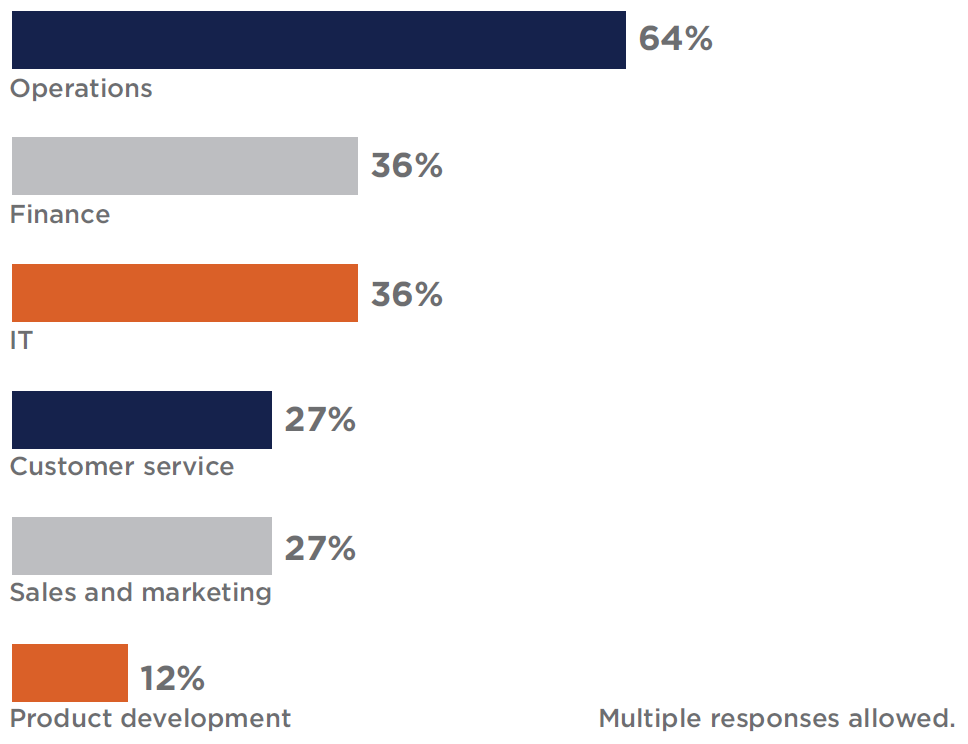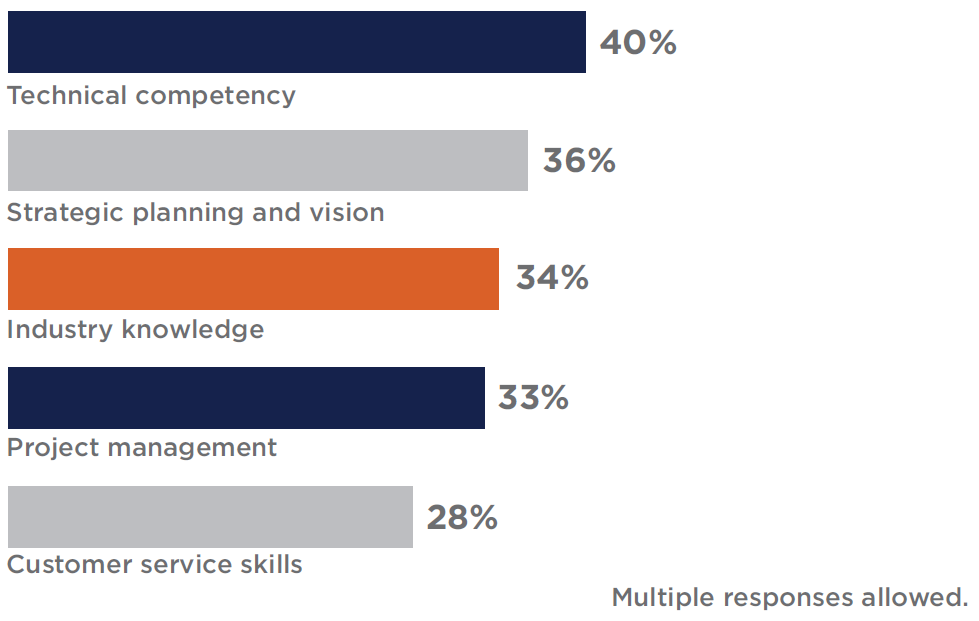The good news? Helping companies better understand their businesses and refine their strategic vision is one of the services increasingly available to them from the newest generation of third-party managed IT services. Once used primarily to provide tactical support, the best of these services today can assist companies in creating a strategic vision for their IT function, and in transforming themselves into digital enterprises. Indeed, 50 percent of the finance executives surveyed by CFO Research identified access to world-class capabilities as one of the top benefits of outsourcing IT activities.
Many companies have already turned to managed IT services to bridge the gaps in their own IT workforce, with generally favorable results. More than two-thirds of the finance executives surveyed—69 percent—say a trusted managed IT services provider can do a better job of delivering IT services than the typical company can do on its own. And a stunning 60 percent now say they would be comfortable having a managed IT services provider deliver all of their company’s IT functionality. Inaddition to giving them access to world-class capabilities, they say, outsourcing IT services can free internal resources for other purposes (57 percent of respondents), streamline or increase efficiency for time-consuming functions (45 percent), and reduce and control costs (32 percent). A small but significant minority—22 percent—also say outsourcing IT can improve a company’s focus.
Many companies also are looking to manage their way through the IT labor shortage by moving some or all of their IT operations to a cloud-based environment, largely eliminating the need to source, manage, and maintain computer hardware and software on their own. Fifty-three percent of the survey respondents say their companies are already using cloud-based services for fundamental applications such as data storage and network hosting, 41 percent are using cloud-based office productivity software, and 37 percent are using cloud-based financial systems. Migrating higher-value activities to the cloud has proceeded more slowly—only 27 percent of survey respondents say their companies use cloud-based data analytics systems, for example—but the percentage of firms doing that is expected to grow. Survey respondents say their companies see clear value in technologies such as mobile applications (69 percent of respondents), big data and predictive data analytics (45 percent), social enterprise (24 percent), Internet of Things (24 percent), and other advanced technologies, all of which benefit from the scalability, agility and cost-savings associated with operating in a cloud environment.



